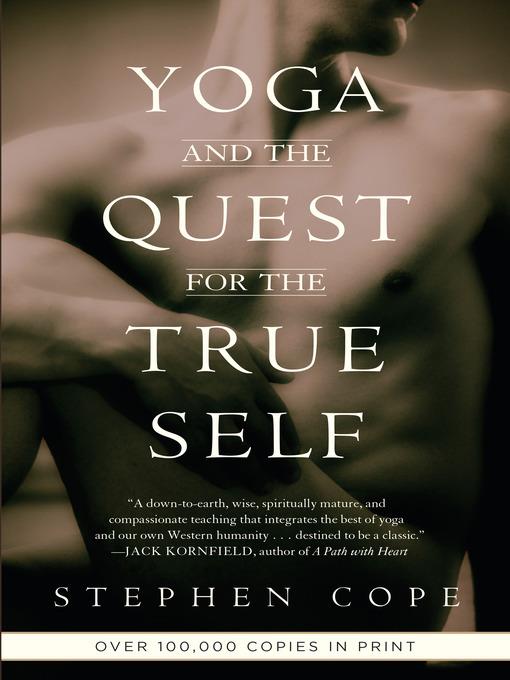
Yoga and the Quest for the True Self
کتاب های مرتبط
- اطلاعات
- نقد و بررسی
- دیدگاه کاربران
نقد و بررسی

October 4, 1999
Yoga, according to first-time author and longtime yoga teacher Cope, can cure the sense of separation that dogs many people in our culture: "a separation from the life of the body; a separation from the hidden depths of life, its mystery and interiority." Here, Cope, a psychotherapist who left a practice in Boston to live, study and ultimately teach at the Kripalu Yoga ashram in Lenox, Mass., navigates yoga for Western seekers. Drawing on his own experiences and the stories of many friends and yoga students, Cope holds up ancient yogic concepts of the self against evolving theories of modern psychotherapy. Rather than attempting a reductive comparison, Cope suggests that various ideas experienced during yoga practice can enhance the goals of Western psychotherapy. Readers familiar with Jack Korn- field's A Path with Heart or Mark Epstein's Thoughts Without a Thinker may find Cope's approach noncommittal. He tells stories of liberation and release without ever quite conceding that yoga and psychotherapy are two profoundly different worldviews. Although ineluctably drawn to yoga practice and the ashram, Cope's point of view is resolutely Western and psychotherapeutic. Still, Cope's psychotherapeutic orientation and genial win-win approach lights up a notoriously arcane subject for Western readers.

August 1, 1999
Loosely utilizing the parable of the Indian king Viveka's spiritual journey to frame his own, Cope describes his ten years of yoga practice, first as a resident and now as a senior teacher at the Kripalu Institute in the Berkshires. Inspired by a devastating breakup, Cope, a psychotherapist by training, first went to Kripalu to investigate an undefined but powerful spiritual yearning. He found a home for himself in the vibrant, complex community dedicated to yoga and personal growth. In this, his first book, he provides a Western perspective by drawing parallels between yogic philosophy and psychology and emphasizing yoga's benefits as both a therapeutic tool and a spiritual path. Cope hints that yoga is being reinvented by its widespread practice in the United States, but, unfortunately, he only begins to probe such changes when, for example, he describes the liberating reorganization of Kripalu following a scandal in 1994. Though Cope's emphasis on Kripalu's style of yoga and his New Age tone will turn some readers off, few other accessible books provide as good an overview of the spirituality of yoga. As a result, this will be in demand wherever yoga is popular.--Rebecca Miller, "Library Journal"
Copyright 1999 Library Journal, LLC Used with permission.

October 15, 1999
Cope, a psychotherapist and senior yoga teacher, came to yoga by way of Buddhist meditation, having heard that yoga relaxs the body. What he found instead was that yoga is meditation in motion. Not only is it an all-but-perfect form of exercise that strengthens bones, muscles, and the circulatory, digestive, and nervous systems, it also has profoundly beneficial effects on the workings of the mind and one's emotional and spiritual well-being. Cope shares his experiences, observations, and revelations in a highly readable blend of personal anecdotes, classic Hindu and yogic teaching stories, and in-depth considerations of the physiological and psychological benefits associated with the regular practice of asana, yoga postures, and pranayama, the control of the breath. Noting that yoga is now being practiced by more than 11 million Americans, Cope explains why: many people are coming to yoga at transitional periods in their lives, and discovering that the resulting stamina, balance, calmness, discernment, and awareness provide a lasting antidote for anxiety, depression, and spiritual malaise. ((Reviewed October 15, 1999))(Reprinted with permission of Booklist, copyright 1999, American Library Association.)

























دیدگاه کاربران